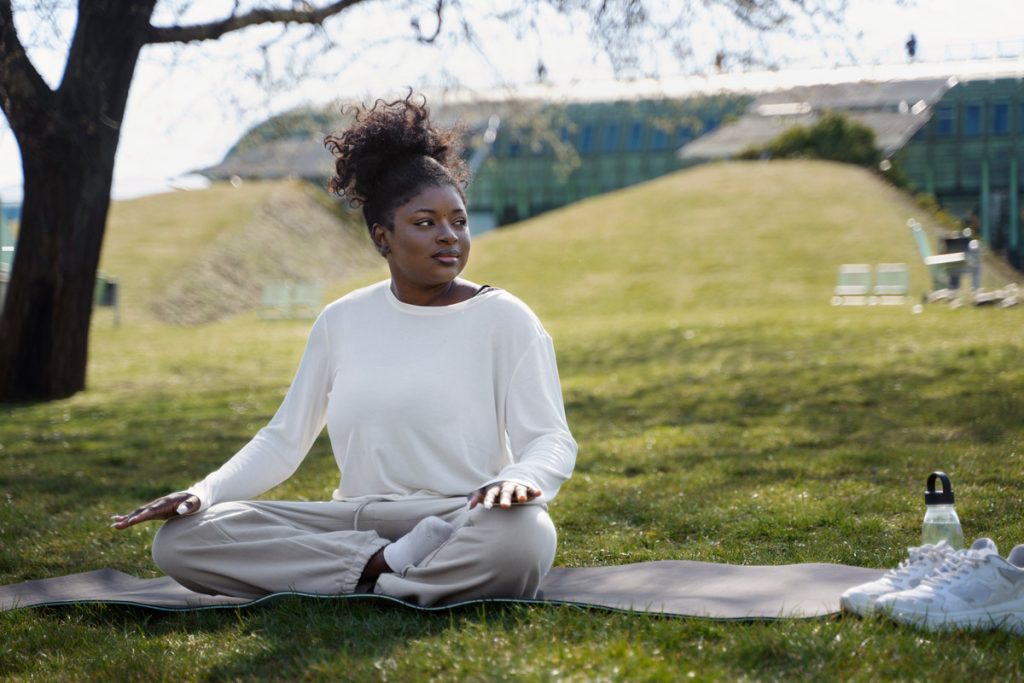When you’re struggling with your mental health, getting yourself up and going to the gym can seem impossible. Whether it’s because you have social anxiety or because you’re just feeling down and unmotivated, it’s understandable that working out is the last thing on your mind.
That said, moving your body can do your mind a world of good. Exercise, especially aerobic exercises that get your heart pumping, has been shown to reduce anxiety and depression. And just because you’re not up for going to the gym doesn’t mean you can’t stimulate those natural brain chemicals to boost your mood and well-being.
If the gym isn’t for you, don’t fret. We have some helpful tips on how to beat those mental health woes without hitting the gym.
Beyond the Gym: Exercise Alternatives for Your Mental Health
No Gym? No Problem! If the gym isn’t your scene—if it makes you anxious, or if you’d rather spend your money on something other than a membership, these alternatives are great ways to relieve stress and help you stay happy and healthy.
Take it Outside
Spending time outside is so good for you that doctors are starting to prescribe nature as a treatment for a range of ailments, from chronic diseases to mental health problems. And there are so many things you can do outside when the weather allows.
Exercise doesn’t have to be strenuous. So, if you’re struggling for motivation to get your heart rate pumping, try simply going for a short walk around the block. Just a few minutes outside can improve your mood. If you’re feeling ambitious, you can move those legs a little faster and go for a run. Biking is also a great option.
If you want an extra dose of nature, try going on a hike. Most cities and towns have parks nearby with paths and trails for outdoor recreation. Or perhaps you live near one of our amazing national parks, like Big Bend, Sequoia, or the Great Smoky Mountains National Park. So get out there and check out the beautiful sights.
Try Some Yoga or Tai Chi
Yoga and martial arts are great stress-relieving exercises that can be much more enjoyable than going to the gym. If you have a studio nearby that you like, check it out — but there are a lot of resources and videos on the internet now that enable you to practice these arts right from the comfort of your home.
Yoga promotes stress relief and relaxation through deep breathing, while martial arts like Tai Chi help soothe your body through mindful, fluid body movements. Both of these are ideal for those who want to strengthen their bodies and their minds without the high impact that can come with many other types of exercise.
Dance, Dance, Dance
Want something that takes your mind off your troubles and doesn’t feel like working out? Try dancing!
You don’t have to have studied at Julliard to enjoy the art of dance. Losing yourself in dance is an excellent way to relieve stress and burn calories. And it’s fun, too!
You can put on some of your favorite upbeat tunes and move your body to the rhythm, or find a fitness dance video on YouTube or other platforms.
Hoop Your Way to Happy
Who said hoola-hoops are just for kids? Not us.
Sometimes, the best way to feel joy and lift your spirits is to do things you loved doing as a kid. It’s a reminder that you’re never too old to have fun and that even simple things can improve your day.
Find a hoop, put on some fun music, and spin your hips to the beat. Or find an online hula-hooping workout video to follow along with. Yes, they do exist!!
Build Your Own Home Gym
Just because you aren’t a fan of going to the gym doesn’t mean you can’t bring the gym to you. If you’ve got the space and money for it, why not build your own home gym?
Some people who struggle with their mental health avoid the gym, not because they are unmotivated, but because they have anxiety about working out in public. That’s okay.
Building a home gym is a great way to get the excitement that sometimes comes with going to a nice, clean gym without leaving the comfort of your home. A spare room or basement can work well for a home gym.
Or you could clear out your garage and build your gym there. Just make sure you give it a thorough cleaning, have good lighting, and keep it neat and organized so you aren’t putting yourself at risk while working out. You can even install insulation and temperature control in your garage if you want to work out year-round.
Feeling Unmotivated? Try These Helpful Tips
If not working out is a matter of feeling unmotivated due to depression, then we’ve got some tips to help you out:
- Start with a plan: Having a clear set of goals and a schedule you can refer to daily can help you find the motivation to start turning daily workouts into a habit.
- Start small: Think “baby steps” and go from there. If you push yourself too hard right away, it can put you off. So start small and focus less on how much work you do and more on how it makes you feel.
- Embrace your preferences: In other words, do what you like. Don’t force yourself to do a workout that you don’t enjoy. Having fun with your workout can help you develop a more positive mindset.
- Find a buddy: Sometimes, you only need a friend to help you feel inspired. Call someone up and go for a walk, or try one of those online dance fitness videos, like Zumba.
- Reward yourself: If you are struggling with your mental health, you might find that you are beating yourself up for not doing more, but this can make you feel even more unmotivated. Remember to go easy on yourself and reward yourself with rest days when needed.
In Summary
You don’t need a gym membership to improve your mind and body. Numerous mental health benefits come with exercising. Just 15 to 20 minutes of movement a day can help you feel better. Remember to start small and work your way up, especially if you’ve been down and unmotivated for a while. There is no hurry, and exercising is more about how it makes you feel rather than seeing physical results immediately.
About the Author: Katie Brenneman is a passionate writer specializing in lifestyle, mental health, education, and fitness-related content. When she isn’t writing, you can find her with her nose buried in a book or hiking with her dog, Charlie. To connect with Katie, you can follow her on Twitter, @KatieBWrites93.
Image by Freepik
The opinions and views expressed in any guest blog post do not necessarily reflect those of www.rtor.org or its sponsor, Laurel House, Inc. The author and www.rtor.org have no affiliations with any products or services mentioned in the article or linked to therein. Guest Authors may have affiliations to products mentioned or linked to in their author bios.
Recommended for You
- The Truth about Relapse in Addiction Recovery - April 14, 2025
- The Power of Peer Support in Mental Health Recovery - April 10, 2025
- Artificial Intelligence in Anxiety Management: How AI Helps Users Cope with Anxiety Symptoms - April 3, 2025





